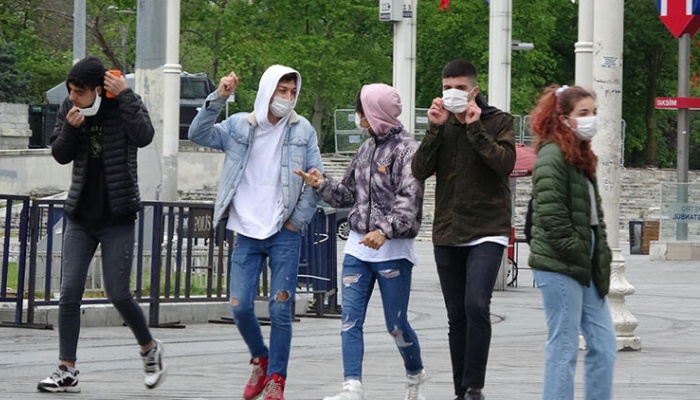A survey conducted by the ORC polling company has shown that an alliance of opposition parties in Turkey would have received nearly half the vote of the country’s Generation Z if a general election were to be held in March, local media reported on Saturday, citing tweets by ORC Director-General Mehmet S. Pösteki.
Turkey’s Generation Z, comprising people born between 1997 and 2012, would make up more than 9 million voters nationwide, or 13 percent of the electorate, in the event a snap election were to be held in the near future.
If the elections are held in 2023 as planned, that figure is expected to increase to 16 percent of nationwide voters, according to local media reports.
The ORC poll, conducted on 2,650 people from 51 provinces between March 16 and 22, revealed that the Nation Alliance, consisting of the main opposition Republican People’s Party (CHP) and the Good (İYİ) Party, would secure 44 percent of Generation Z votes in a March election, with the CHP garnering 25.6 and the İYİ receiving 18.4 percent.
According to the poll, the Public Alliance of the ruling Justice and Development Party (AKP) and the Nationalist Movement Party (MHP) would have received 16 percent of Generation Z votes in a March election, with the AKP garnering as little as 12.5 percent, which is less than those who are undecided and those who decided not to cast votes, representing 14.7 and 12.9 percent of the group, respectively.
The pro-Kurdish Peoples’ Democratic Party (HDP) would have secured 7.6 percent of Generation Z votes in a March election, the poll also showed.
In the last general election, held in June 2018, the AKP garnered a nationwide vote of 42.6 percent. However, public surveys have increasingly been showing the party’s public support to be slipping.
President Recep Tayyip Erdoğan, whose ruling AKP has been in power as a single-party government since 2002, was elected president in 2014 and re-elected in 2018. His election in 2018 was under a presidential system as Turkey switched from a parliamentary to a presidential system of governance after a referendum in 2017. Under the presidential system, Erdoğan is accused of establishing one-man rule, destroying the separation of powers and silencing dissent.
The AKP government launched a massive crackdown on non-loyalist citizens following a failed coup in July 2016, with thousands of people jailed on trumped-up terrorism or coup charges.
